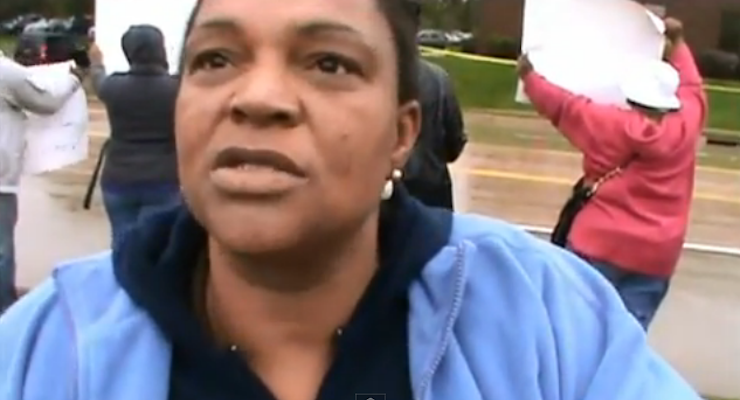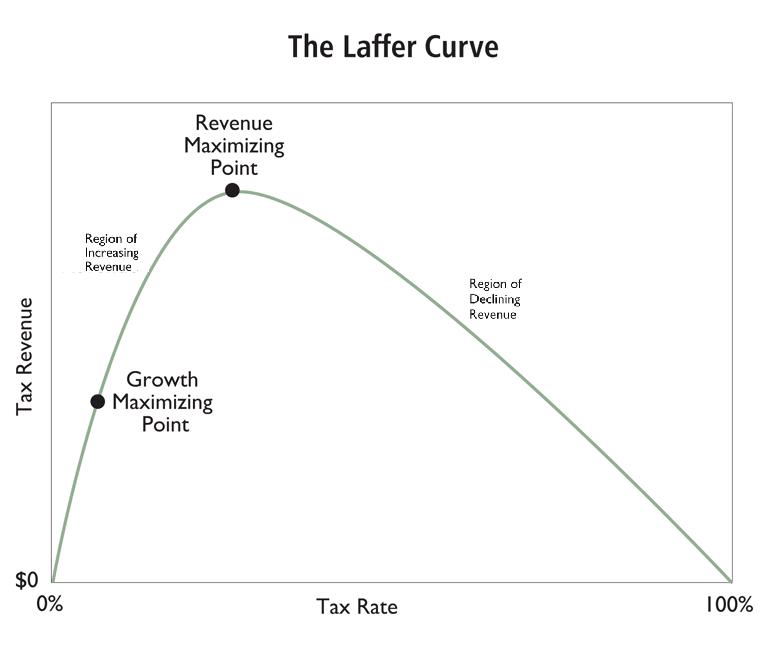
Maybe the warm weather is affecting my judgement, but I’m finding myself in the odd position of admiring some folks on the left for their honesty.
A few days ago, for instance, I (sort of) applauded Matthew Yglesias for openly admitting that punitive tax rates would put us on the downward-sloping portion of the Laffer Curve.

He still favors such a policy, which is very bizarre, but at least his approach is much more honest than other statists who want us to believe that very high tax rates generate more revenue.
Today, I’m going to indirectly give kudos to another leftist.
Writing for the Washington Post, Katrina vanden Heuvel openly argues that the meaning of freedom should be changed. Here’s some of her argument, and we’ll start with her reasonably fair description of how freedom currently is interpreted.
For conservatives, freedom is centered in markets, free from government interference. …Government is the threat; the best thing it can do is to get out of the way. …freedom entails privatization, deregulation, limiting government’s reach and capacity.
Needless to say, I agree with this definition. After all, isn’t freedom just another way of saying “the absence of coercive constraint on the individual”?
Heck, this is why I’m a libertarian. Sure, I like the fact that liberty produces more prosperity, but my main goal it to eliminate needless government coercion.
But I’m digressing. Let’s get back to her column. She complains that folks on the left have acquiesced to this traditional conception of freedom.
Democrats chose to tack to these conservative winds. Bill Clinton’s New Democrats echoed the themes rather than challenge them. “The era of big government is over,” he told Americans, while celebrating “ending welfare as we know it,” deregulation of Wall Street… Obama chose consciously not to challenge the conservative limits on what freedom means.
Then she gets to her main argument. She wants Hillary Clinton to lead an effort to redefine the meaning of freedom.
This is Hillary Clinton’s historic opportunity. …She would do a great service for the country — and for her own political prospects — by offering a far more expansive American view of what freedom requires, and what threatens it. …expanding freedom from want by lifting the floor under workers, insuring every child a healthy start, providing free public education from pre-k to college, rebuilding the United States and putting people to work… Will she favor fair taxes on the rich and corporations to rebuild the United States and put people to work? Will she make the case for vital public investments — in new energy, in infrastructure, in education and training — that have been starved for too long? Will she call for breaking up banks…? Will she favor expanding social security…? …to offer Americans a bolder conception of freedom…and set up the debate that America must decide.
Needless to say, I strongly disagree with such policies. How can “freedom” be based on having entitlements to other people’s money?!?
Heck, it’s almost like slavery since it presupposes that a “right” to live off the labor of others. But that’s not technically true since presumably there wouldn’t be any requirement to work.  So what would really happen in such a society is that people would conclude it’s better to ride in the wagon of government dependency, as illustrated by these cartoons.
So what would really happen in such a society is that people would conclude it’s better to ride in the wagon of government dependency, as illustrated by these cartoons.
Which means, sooner or later, a Greek-style collapse because a shrinking population of producers can’t keep pace with an ever-expanding population of moochers and looters.
Nonetheless, I give Ms. vanden Heuvel credit for acknowledging that her preferred policies are contrary to the traditional definition of freedom.
To be sure, I’d admire her even more if she simply admitted that she favors government coercion over freedom. That would be true honesty, but I can understand that folks on the left would prefer to change the meaning of words rather than admit what their agenda really implies.
P.S. Some of you may recognize that the issues discussed above are basically a rehash of the debate between advocates of “negative liberty” and supporters of “positive liberty.”  The former is focused on protecting people from the predations of government while the latter is about somehow guaranteeing goodies from the government.
The former is focused on protecting people from the predations of government while the latter is about somehow guaranteeing goodies from the government.
P.P.S. As mentioned in Ms. vanden Heuvel’s column, today’s effort to redefine freedom is similar to the so-called economic bill of rights peddled in the 1940s by FDR.
[mybooktable book=”global-tax-revolution-the-rise-of-tax-competition-and-the-battle-to-defend-it” display=”summary” buybutton_shadowbox=”true”]






